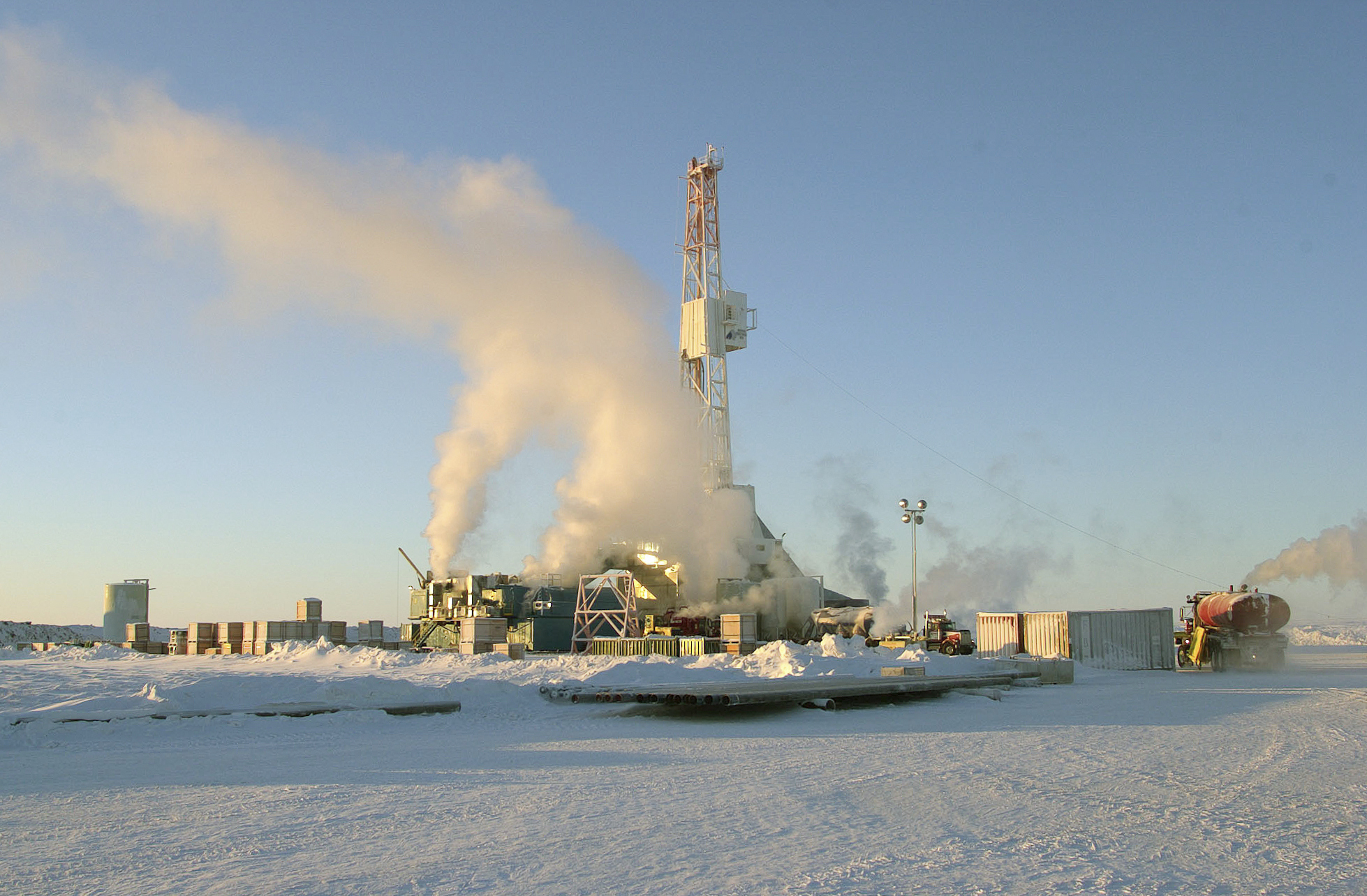Arctic oil town fears future as Imperial’s wells shut

When oil topped $100 a barrel three years ago, the tiny village of Norman Wells in Canada’s high Arctic was gearing up to be the “Dubai of the Mackenzie River,” with oil revenue bringing prosperity to all.
Now, with oil at half that price and one of Canada’s oldest wells set to close, the future is less certain for the 750 residents in the Northwest Territories town.
Imperial Oil, the Canadian unit of Exxon Mobil Corp., will probably shut in the wells this month, ending almost a century of production in the area about 1,000 miles (1,700 kilometers) north of the Calgary energy hub. Production is being halted after the lone Enbridge pipeline that carries oil south from Norman Wells was brought down late last year, Lisa Schmidt, an Imperial Oil spokeswoman, said by phone. Schmidt declined to say if production will resume.
The town that grew up along the Mackenzie River back in 1920, when oil was first pumped, has lived off the operations ever since. Gas produced from the site is used to generate electric power for the homes, and a steady stream of oil workers fill the local curling club and restaurants. Yet restoring the pipeline and resuming production will, at best, only buy the town time, said Mayor Nathan Watson.
“This has been a slow steady decline of this field for a number of years,” he said by phone. “We are approaching the end. Within five to 10 years, something will give.”
Oil output dropped to just under 9,000 barrels a day last year, down 73 percent from its 1991 peak of 33,000 barrels, according to National Energy Board data. Profits earned by the federal government, a one-third owner, fell to about C$75 million ($57 million) in 2015 from C$109 million two years earlier, according to Indigenous and Northern Affairs data.
Last September, Calgary-based Imperial announced it was looking for a buyer for the site and it still is, Schmidt said. That will be almost impossible unless Enbridge’s 50,000 barrel a day Line 21 is restored, Watson said.
Running from Norman Wells to Zama in Northern Alberta, Line 21 is the sole means for transporting crude out of the area. Enbridge said in November that concern about stability on an area of the Mackenzie River’s south slope prompted them to shut the line.
The Calgary-based pipeline operator “continues to work closely with our customers as well as our stakeholder communities as we move forward on remediation planning,” spokeswoman Suzanne Wilton said in an e-mail Jan. 31. “We are in the early stages of planning and have not finalized a timeline or scope of work.”
The future of this arctic town seemed less dire a few years ago when oil traded as high as $115 a barrel, Watson said.
“We were gearing up to be the Dubai of the Mackenzie River,” he said.
At the time, other producers were showing interest in the region. Calgary-based MGM Energy was exploring alongside ConocoPhillips, Imperial Oil, Royal Dutch Shell and Husky Energy in the Canol Shale of the territory’s central Mackenzie Valley. Producers had committed more than C$625 million in exploration spending at land auctions since 2011. A National Energy Board report in 2015 estimated the Canol and Bluefish formations hold about 190 billion barrels of oil in place, which would make them the largest in the country. Oil companies have since suspended work amid the biggest oil rout in decades.
While Imperial’s planned shutdown has been the talk of the town, residents aren’t clear what will happen next, said Peter Stilchak, president of the Norman Wells Chamber of Commerce. “There are rumors like crazy,” he said. “At one point, they are shutting down but nobody knows when or what or how big an impact it will be.”
While Imperial said it’s looking for alternative work for the 60 employees at the site, contractors and businesses may face difficult times ahead, Watson said. The future of the power supply is also a concern as natural gas produced from the Imperial site runs a generator that supplies the town, Stilchak said.
While backup diesel generators are available, their reliability is uncertain and a blackout could be perilous in mid-winter, when there is about four hours of daylight and temperatures dip below (-22 Fahrenheit (-30 degrees Celsius), he said.
Northwest Territories Power Corp., a Hay River-based public utility, keeps diesel generators “well maintained and tested,” Pam Coulter, communications manager, said in a phone interview. “The township should feel confident that we can do that,” she said.
Without the oil, Norman Wells may suffer, though the pain won’t be “crippling,” Watson said. While tax revenue will shrink, the town hosts government offices and an airport with a 6,000-foot (1,800-meter) runway capable of hosting Boeing 737s. The area is popular with American hunters in warmer months. And in January, the federal and Northwest Territories governments pledged C$20 million to build a 14-kilometer all-season road.
The hope is that further funding can be secured for a highway that would connect the town to the rest of the country year round, making future oil operations much cheaper, Watson said.
“We would go from being an island to being the end of the road,” he said.